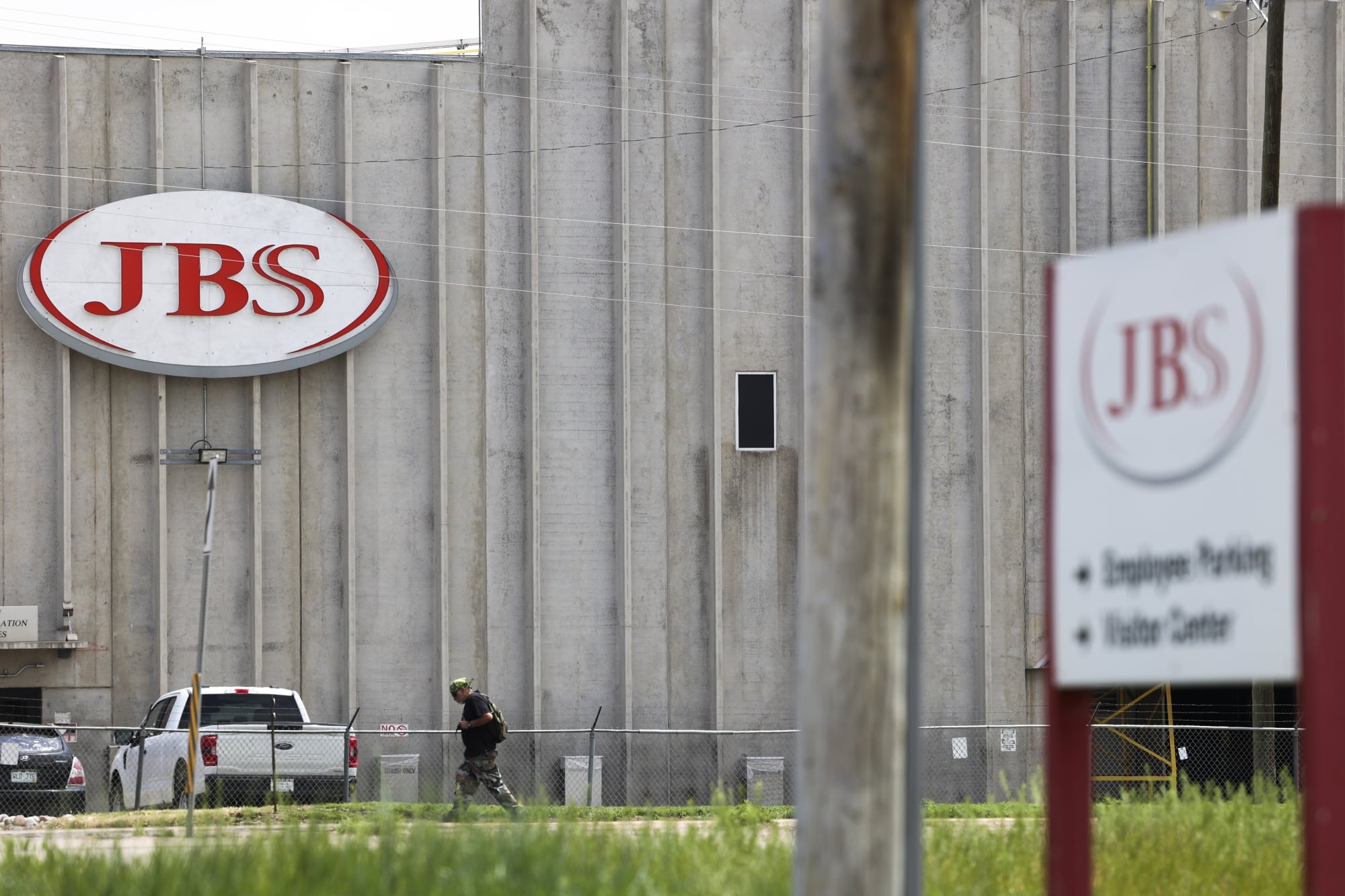Cyber Society
Cyberattack shuts down production of world’s largest meat processing company – JBS Foods
A weekend cyberattack prompted JBS Foods, the world’s largest meat processing company, to shut down production around the world. The Brazilian company’s information systems were targeted. It’s unclear as to how many plants globally have been affected by the ransomware attack. JBS is the No. 1 beef producer in the US, accounting for 23% of the nation’s maximum capacity.
In an official statement, JBS Foods said it has made significant progress in resolving the ransomware attack that impacted operations in North America and Australia. The company expects that the vast majority of its plants will be back on Wednesday. However, the prospect of more extensive shutdowns worldwide is already upending agricultural markets and raising concerns about food security as hackers increasingly target critical infrastructure.
JBS also notified the Biden administration; the administration said it would do whatever it can to mitigate the impact on the meat supply. US Senator John Thune, the Senate’s No. 2 ranking Republican leader, said attacks like this highlight the vulnerabilities in the US’s food supply chain security, and they underscore the importance of diversifying the nation’s meat processing capacity. Any substantial disruption in meat processing would further stoke mounting political concerns about the concentration of the meat industry and complaints of the four giant companies that control more than 80% of US beef processing unfairly leverage their power over farmers and consumers.
Michael Nepveux, an economist with the American Farm Bureau Federation, told Al Jazeera the impact on meat prices at the grocery store may not be immediately apparent. He pointed out that retailer’s don’t always like hiking prices on consumers and may try to resist. “How long it goes on will impact to what level consumers start to see something at the grocery stores.”
Also Read: BRICS foreign ministers support patent waiver proposal by India and South Africa
Beef prices rose in the US because of the cyberattack. A prolonged impact to JBS’s operations could mean bigger consequences for the restaurants that serve beef, including shortages or longer lasting inflation. Jake Bartlett, Truist analyst, told CNBC that the company’s plant shutdown impacts a greater portion of supply, but the supply disruption is likely for a much shorter time period. “This is a bad time for a supply disruption as spiking demand is already stressing the supply chain.”








































Pingback: Tata Consumer Products Ltd with the launch of its premium roasted and ground coffee under Sonnets brand has stepped into the D2C consumer market.
Pingback: Dark Storm Team Claims X Cyberattack, Elon Musk's foreign Entity